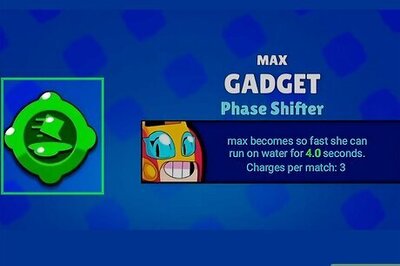
views
What is an industry plant?
An industry plant is a label-backed artist who is portrayed as independent or home-grown despite having significant label support. This support is often seen in strong and frequent social media campaigns, sudden features with high profile artists, and playlist placement. The term was popularized in the rap community, being used to call out rappers who lied about their upbringing in songs. The term is often used when small artists blow up without extensive catalogs, or when their sound is more polished than the average small artist’s. Industry plants can go on to have strong careers that help them shed the label, but this requires a strong passion for music.
Notable Industry Plants
Billie Eilish. Billie Eilish blew up with her song “ocean eyes,” which was written and produced by her brother, FINNEAS. FINNEAS is well-connected in the music industry, having performed at the popular rock festival, Warped Tour, with his band, The Slightlys, the same year “ocean eyes” was released. After “ocean eyes” went viral on Soundcloud, FINNEAS helped her get signed to the A&R company, Platoon, who helped launch her career and sign to the Darkroom record label. FINNEAS has helped write and produce some of Billie’s biggest hits, including “bad guy” and “you should see me in a crown.”
Lorde. Lorde signed her first deal to Universal Music Group in 2009. After a performance at a talent show, the then 13 year-old was recognized by a Universal talent scout. When she signed the deal, she was paired with Joel Little, a former punk pop performer who helped shape her sound. The two went on to release The Love Club EP in 2012, which featured the popular song, “Royals.” The song would propel Lorde into stardom, going viral after she uploaded the track to Soundcloud. Despite her industry-backed start, Lorde has been praised by fans for her authenticity and passion for music.
Clairo. Clairo is a unique case in the industry plant debate, as she was recognized for a viral bedroom-pop song that was uploaded to YouTube.Her father, Geoff Cottrill, has extensive music industry connections, overseeing the launch of RubberTracks–a free recording studio for unsigned artists–during his time as Converse’s Chief Marketing Officer. After she went viral, Clairo’s father connected her with Jon Cohen, the co-founder of FADER Magazine, a popular music publication. Cohen went on to mentor and sign her to the company’s label, further propelling her into the spotlight.
King Princess. King Princess is the child of recording engineer, Oliver H. Straus Jr., and spent her formative years in his recording studio. She turned down a deal at age 11 so that she could retain creative freedom, continuing to build herself until she signed to the Columbia Records input label, Zelig, in 2017. Following her signing, she would release her debut single, “1950,” which received media attention and a co-sign from former One Direction singer, Harry Styles, on Twitter (now X).
What is the purpose of an industry plant?
An industry plant’s main purpose is to generate profit for the label they are signed to. This is why labels push them so hard, as success for the artist equals profit for them. It’s a record label’s job to turn artists into stars, and it is essential for the function of the music industry. Labels build up artists who they believe will be successful by providing them with advice, promotion, funding, and career opportunities. This does not mean that industry plants exist strictly for profit, as they create music that resonates with listeners regardless of their affiliation with a label.

















Comments
0 comment